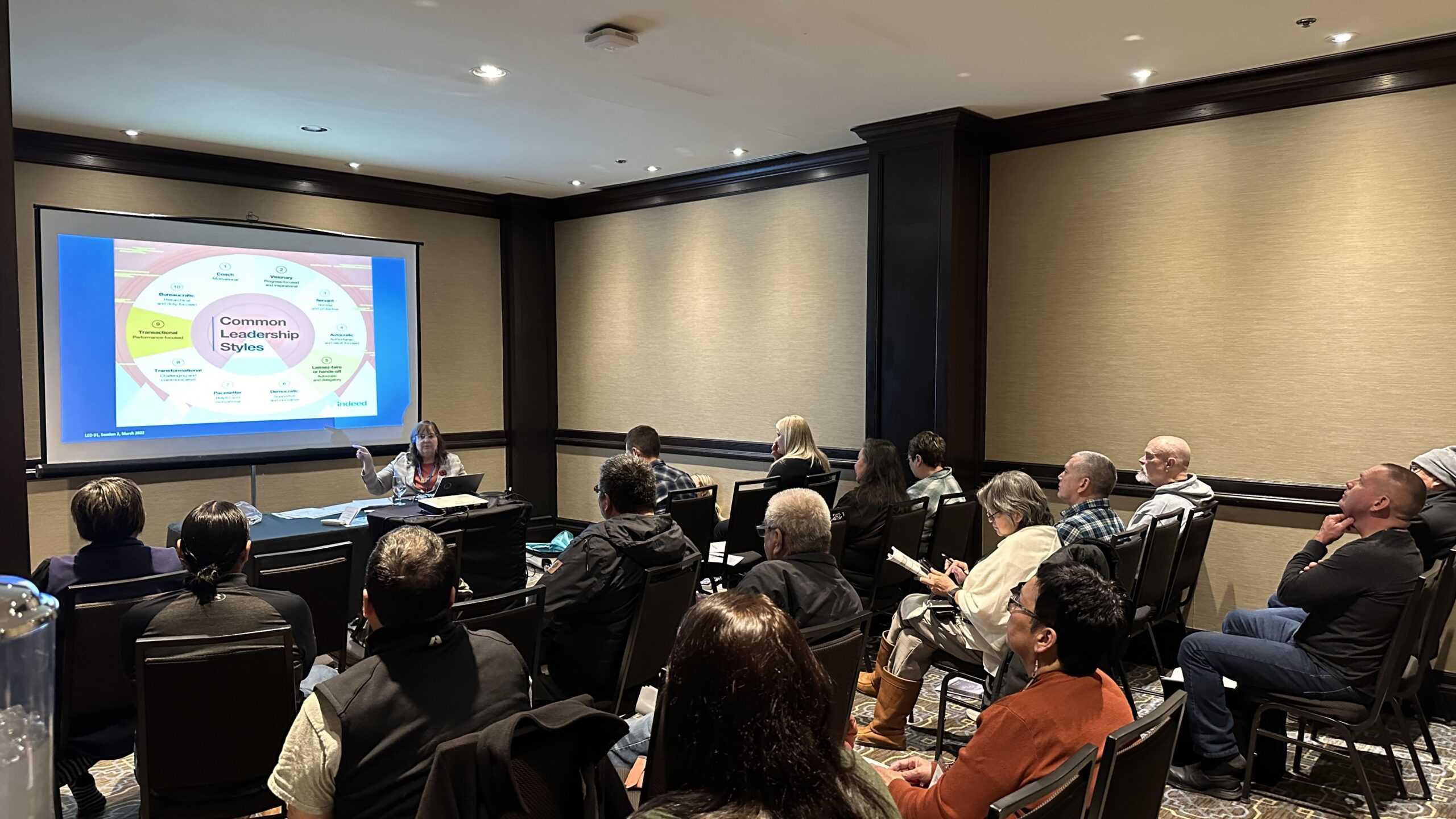Professional Development Courses
FNEAA is pleased to invite you to register for our upcoming professional development courses.
The Winter 2024 courses will be offered on ZOOM.
These virtual courses consist of one-day workshops and two-day workshops. All scheduled courses will run from 8:30 a.m. to 5:00 p.m. with a 30-minute break in between each session.
Learn from anywhere across the country.

Customized Virtual OR In-Person Courses
FNEAA staff will work with you to make arrangements to deliver a customized course to your staff and elected leaders at a time that is convenient to you. See all of our offerings here: FNEAA Course Offerings
Registration Fees
One day courses are $400 for members and $500 for non-members.
Two day courses are $800 for members and $1000 for non-members.
Your registration fee includes access to the virtual course and digital course materials.
Registrants are responsible for ensuring they have access to a computer and a connection to the internet.
Membership Pricing
To receive membership pricing you must be a member of FNEAA. For more information click here. If you are a member and are having issues registering, please contact Claire Brascoupé at cbrascoupe@fneaa.ca.
Registration
This course will provide principals, supervisors and Directors of Education and education administrators (at all levels) with guidance and tools regarding the various local and regional First Nation education agreements across Canada. Learn about the various agreements that have been negotiated by First Nations across the country. Identify which elements of an education agreement are most appropriate for your students and schools. Learn how to apply this knowledge to develop and implement your education agreement for your nation, education organization and/or school.
Instructor:
Jarrett Laughlin comes from a family of educators and has been engaged in education research and policy development for over 15 years. He has worked for the Assembly of First Nations, Canadian Council on Learning and the Ontario Ministry of Education.
Course Fee: $400 for members; $500 for non-members
Click below to register:
This course is a follow-up to EDU-01 First Nations Education Agreements and will provide principals, supervisors and Directors of Education and education administrators (at all levels) with guidance and tools on how to move forward to reciprocal agreements with federal and provincial governments. Learn about the negotiation strategies and best practices in this context. Learn about the federal governments past and current approaches to negotiating First Nations education agreements. Learn how to develop a negotiation plan for your education agreement and determine who is to negotiate the agreement. Gain a better understanding of the process and steps to negotiate the agreement using realistic timelines.
Instructor:
Khrystyna Orobets, MPA is a Manager in the Consulting Practice of MNP’s Indigenous Services Consulting Niche. She has a Bachelor of Business Administration Degree and a Master’s Degree in Public Administration. Khrystyna has over 9 years of experience working with Indigenous communities and assisting her clients with various activities, including the development of project work plans and strategic plans, managing stakeholder engagement, performing financial and funding analysis, and preparing written reports and deliverables.
Course Fee: $400 for members; $500 for non-members
Click Below to Register:
This course will enable participants to identify and apply the core leadership skills needed in communities, schools, and/or school boards/ organizations to support the work of First Nations Education. Learn about: leadership theories and models; First Nations traditions, cultural practices, and values; and assessing leadership styles. An overview of leadership strengths will be examined, such as self-awareness, influence, and communication. Focus on traditional ways of leading and how this differs from the mainstream approach.
Course Instructor:
Dr. Cathy Martin, Ed.D. is a Mi’gmaq Grandmother, who was raised and resided most of her life in the Listuguj First Nation. Dr. Martin has a Doctorate Degree in Educational Leadership from the University of Phoenix. Dr. Martin is currently an elected member of council for the Listuguj Mi’gmaq Government.
Course Fee: $400 for members; $500 for non-members
This course (eight sessions) provides an overview for those involved in finding, hiring, and retaining qualified candidates to work in First Nations Education such as administrators, teachers, and other educators. Learn how to effectively develop a recruitment and retention plan, job descriptions, and interview guide and manage an effective interview process. Find out how to create a talent pool; negotiate employment contracts; and develop an onboarding program for new employees.
Instructor:
Manon Lamontagne is a certified Indigenous consultant specializing in Indigenous capacity development and learning. She is a Certified Human Resources Professional and a Certified Aboriginal Professional Administrator (CAPA). She holds a Master’s Degree from McGill University with a specialization in Knowledge Management and a Masters of Business Administration (MBA) from the University of Montreal’s Hautes Etudes Commerciales.
Course Fee: $800 for members; $1000 for non-members
Please email info@fneaa.ca if you are interested in taking this course. Dates to be determined.